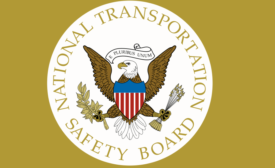Home » NTSB investigation
Articles Tagged with ''NTSB investigation''
Despite experience, crew of doomed plane made fatal errors
NTSB: 11 second delay was difference between life and death
September 10, 2015
Here’s who you’re sharing the road with
Kentucky truck driver declared an imminent hazard to public safety
July 30, 2015
Poor communication led to Houston Ship Channel collision, says NTSB
Agency reiterates recommendation for a vessel separation policy
June 15, 2015
Become a Leader in Safety Culture
Build your knowledge with ISHN, covering key safety, health and industrial hygiene news, products, and trends.
JOIN TODAYCopyright ©2024. All Rights Reserved BNP Media.
Design, CMS, Hosting & Web Development :: ePublishing




